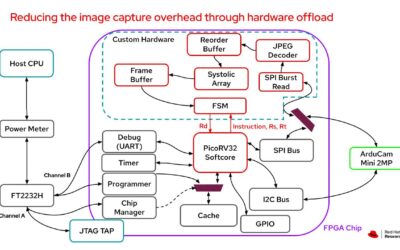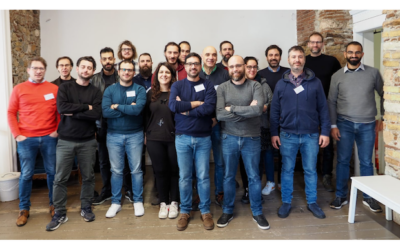If you haven’t heard about ROSE already, ROSE stands for Red Hat Open Source Education, it started 7 years ago as a cross-community effort that brings students together from Tira- an Arab city in the triangle, and Ra’anana to learn about the Linux operating system and Python programming.
Each ROSE cycle included 14 students, 7 from Tira, and 7 from Ra’anana.
The students came from different schools and cultures and spent about three months on a weekly basis working and learning together at the Red Hat office in Ra’anana.
They learned how to collaborate together and get out of their comfort zone by communicating one with each other, even though they are using different languages (Arabic and Hebrew).
In ROSE we’re motivating them to speak in one common language, which is Python.
Sadly, Covid-19 created 4 major significant challenges in the program’s operation:
- We were not able to reach out to the schools and get the student’s engagement.
- We could no longer host the project in the Red Hat Israel offices.
- Red Hat could not provide a PC to each student with an installed Linux OS, and students need to use their own computer.
- We were not able to see the students face to face, which can reduce our informal talks and the personal connection with them, which might lead to reducing the engagement of the students.
So how did we face those difficulties?
We have decided to open the ROSE program to all Red Hatter’s relatives that were interested in learning Linux and Python, with no age limitation or previous knowledge,
The only limitation we kept is the number of people that can participate in a class in order to maintain personal treatment for each student.
To overcome the fact we could not provide a PC for each student, we needed to develop a suitable solution, to give a unique studying environment with development tools such as python, pytest, pipenv on top of a Linux distribution system for over 30 students.
We decided to use virtual machines in order to provide that functionality.
To set up an environment that contains 30+ VMs, we used The Massachusetts Open Cloud (MOC) OpenStack cluster infrastructure.
The MOC is a production public cloud resulting from a unique collaborative effort between higher education, government, non-profit entities, and industry that enables a healthy marketplace.
After having the VMs ready for use, we had to face the challenge of connecting our students in Israel to their VMs in Boston securely. We implemented security best practices, such as ssh-key authentication, and ssh-tunneling, to ensure the students are staying safe in the global network.
Also, we made sure that the process is automated and scalable, which allows us to distribute updates and configuration to the VMs remotely, and set up new VMs easily. We accomplished this using automation tools like Ansible and Terraform. The investment in automation will ensure that future courses are a non-issue.
Finally, all of the above is open-sourced and available for others to use!
The real challenge for us was to try and not to lose the personal relationship with the students and increase their engagement in the project.
In order to do so, each student got a personal mentor.
The mentors are RedHatters that volunteer to participate in ROSE, they are responsible for their mentee (students) personal development, such as classwork, or day to day balancing between job and work life.
The mentors can also give their mentee’s unique challenges according to their own progress in the class.
The need to make this course Virtual turned out to be a blessing in disguise, now we can offer many more people the option to learn about Linux, Open Source, Python, and Red Hat’s unique culture.
We can increase the number of ROSE cycles each year, and in the future, we would like to increase the number of people that can participate in each ROSE cycle.
In this opportunity, we’d like to thank all mentors, project committers, and Red hatters who take a huge part in the ROSE program, its success, and what it became to be.
We couldn’t do it without you!







